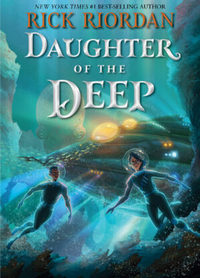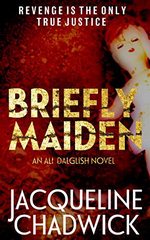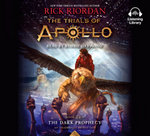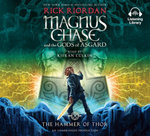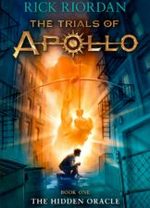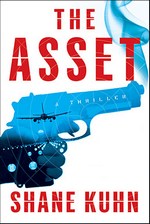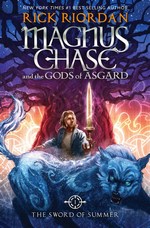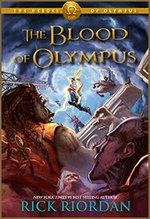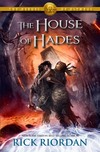
Last year I kicked off my Year-End Retrospective with a look at my favorite audiobooks, I might as well repeat that this year. How do I keep this from being just a rehash of my other year-end lists? By focusing on the audiobook experience over the content. What was it like to listen to it? How engaging was it, how did the narrator do? Was it a good match in terms of tone, content, and performance? All of these books are/were good—but the audiobooks are a bit better because of the narrator and the rest of the people involved in the production.
(in alphabetical order by author)
 The Hum and the Shiver
The Hum and the Shiver
by Alex Bledsoe, Emily Janice Card(Narrator), Stefan Rudnicki (Narrator)
This was my third or fourth trip through this book (maybe, fifth, but I don’t think so). I’m not sure if that means it was easy for me to be impressed—or maybe it was really hard because I had high expectations. Regardless, Rudnicki and Card took me to Cloud County and the land of the Tufa. I could believe that these people lived, breathed, and walked around in this world—and yet were otherworldly, as they ought to be. I knew Rudnicki could make me believe in a Fantasy world—it turns out that he can make me believe in this one, too. Card was right there with him.

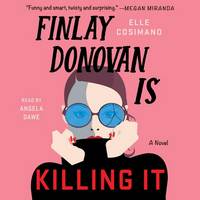 Finlay Donovan Is Killing It
Finlay Donovan Is Killing It
by Elle Cosimano, Angela Dawe (Narration)
My original post
This is on the list because of Dawe’s narration. The text was entertaining enough, sure, but her narration is what made sure I remembered the book during the list-making time. The novel was a tricky balancing act between the various tones and characters, and Dawe makes you believe it. She captured the comedic sense of the novel along with the tension and emotional moments. There were a few accents involved and she did a believable job with them, too.

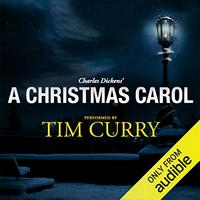 A Christmas Carol: A Signature Performance by Tim Curry
A Christmas Carol: A Signature Performance by Tim Curry
by Charles Dickens, Tim Curry (Narrator)
My original post
I’ve said it before, I’ll say it again: all you need to know about this is: Tim Curry. This wasn’t the performance I expected—I figured I was in for something near to over-the-top, with Curry going to town with the text. Instead, we’re treated to a respectful, restrained performance giving Dickens’ classic just the right emotional weight, sentimentality, personality, and life.

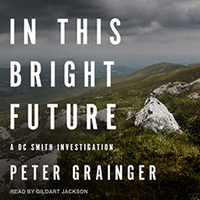 In This Bright Future
In This Bright Future
by Peter Grainger, Gildart Jackson (Narrator)
My original post
Grainger and Jackson together have made this one of my Top 3 audiobook series, period. So my only question was how many of the books would end up on this list. I ended up limiting myself to one, and therefore it had to be this one—we get so little of our typical characters and settings, but Jackson is able to make Belfast as warm and homey as King’s Lake. There are elevated dangers and emotions in this book that we don’t typically get with D.C. Smith, but Jackson doesn’t miss a beat. Grainger puts D.C. through his paces, too. Both are at the top of their game—making D.C. at the top of his, too.

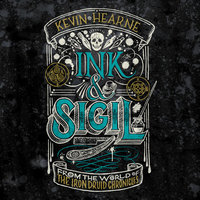 Ink & Sigil
Ink & Sigil
by Kevin Hearne, Luke Daniels (Narrator)
Even though a pro like Luke Daniels is constantly doing voices/accents for his characters and the narration is almost never his “natural” voice (assuming he even has one anymore), I have to think that maintaining a Glaswegian accent for as long as he did for this book (ten hours and change, I think) has to be an added level of difficulty. Not that you can tell from listening to this. I thought the novel was a rollicking good time and just the way you should introduce a new series. The audiobook version just cemented that.

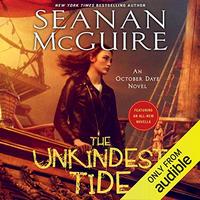 The Unkindest Tide
The Unkindest Tide
by Seanan McGuire, Mary Robinette Kowal (Narrator)
This novel was the payoff (as far as we know so far, I wouldn’t put it past McGuire to turn it upside down later) to a storyline that had been lingering and building for years, I remember being stunned when reading it—just that aspect of The Unkindest Tide brought a great combination of anticipation, grief, suspense, and surprise. The story of the novel—the trip to the Duchy of Ships, the intrigue around Dianda, etc. was as solid as it gets, too. I remembered all this going in, so it was all teed up for Kowal—and she nailed it, it almost felt like I hadn’t read the book before and was discovering it fresh. A narrator who can do that is tops in my book.

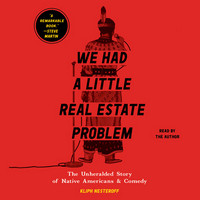 We Had a Little Real Estate Problem: The Unheralded Story of Native Americans and Comedy
We Had a Little Real Estate Problem: The Unheralded Story of Native Americans and Comedy
My original post
As I was trimming down the list of audiobooks I listened to last year for this list, I didn’t expect that this would stay on the list. A history of Native Americans in Comedy, really? But I kept not deleting it…so I started thinking of it—there’s a social history, an entertainment history, with individual profiles mixed it—it has it all. What’s more, despite a pretty dry (but never boring) narration, and not using clips of original performances, the comedy of these individuals comes through. In the midst of hardship, suffering, prejudice, and hard breaks, there are some solid laughs. It’s hard not to keep thinking about that.

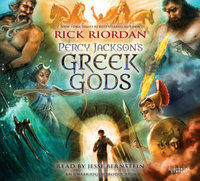 Percy Jackson’s Greek Gods
Percy Jackson’s Greek Gods
by Rick Riordan, Jesse Bernstein (Narrator)
I started working on a post last year about contemporary myth retellings (and I intend on finishing it before my unconceived grandkids are ready to read it), and listened to this as part of that. In many ways, the book and the information didn’t fare well compared to things like Gaiman and Fry have recently produced. But this is here and they’re not—because as an audiobook this is a great experience. Bernstein is Percy Jackson here, and it felt like something ol’ Percy was sitting down and relating to future Camp Halfblood residents. It inspired me to listen to the original Percy Jackson series again just so I can listen to Bernstein perform this character.

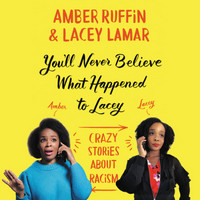 You’ll Never Believe What Happened to Lacey: Crazy Stories about Racism
You’ll Never Believe What Happened to Lacey: Crazy Stories about Racism
by Amber Ruffin, Lacey Lamar
My original post
I’m still telling people about this audiobook/book nine months later. I can’t think of a book that made me angrier, sadder, or made me laugh as much in 2021 (or a few years before it, either). This did all three. Ruffin’s narration, Lamar’s stories, their hurt, and their optimism make this a must-listen.

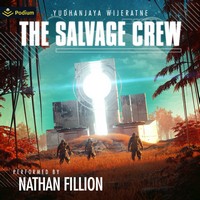 The Salvage Crew
The Salvage Crew
by Yudhanjaya Wijeratne, Nathan Fillion (Narrator)
My original post
This is a very strange SF story about a sentient AI (based on the memories and personality of an engineer). I think I’d have enjoyed the story had I read the novel, but it’s Nathan Fillion that brought it to life. That same charm that makes you like Caleb, Mal, Castle, and Nolan shines forth and makes you believe in this malfunctioning (at least eccentrically-functioning) AI and get invested in the AI’s survival and that of his ragtag crew.

![]()


